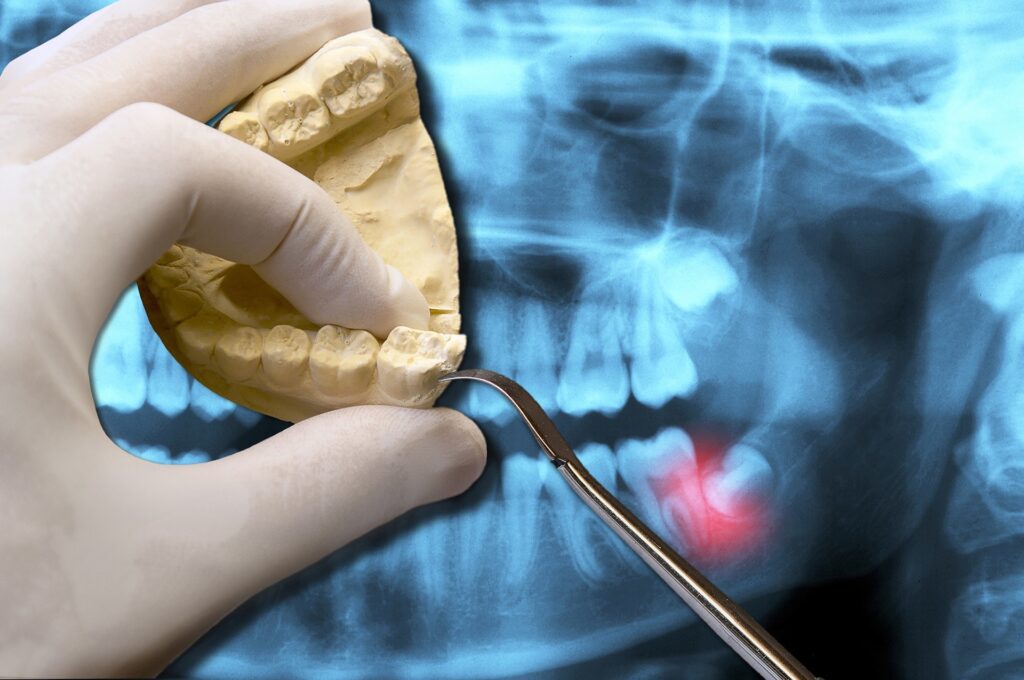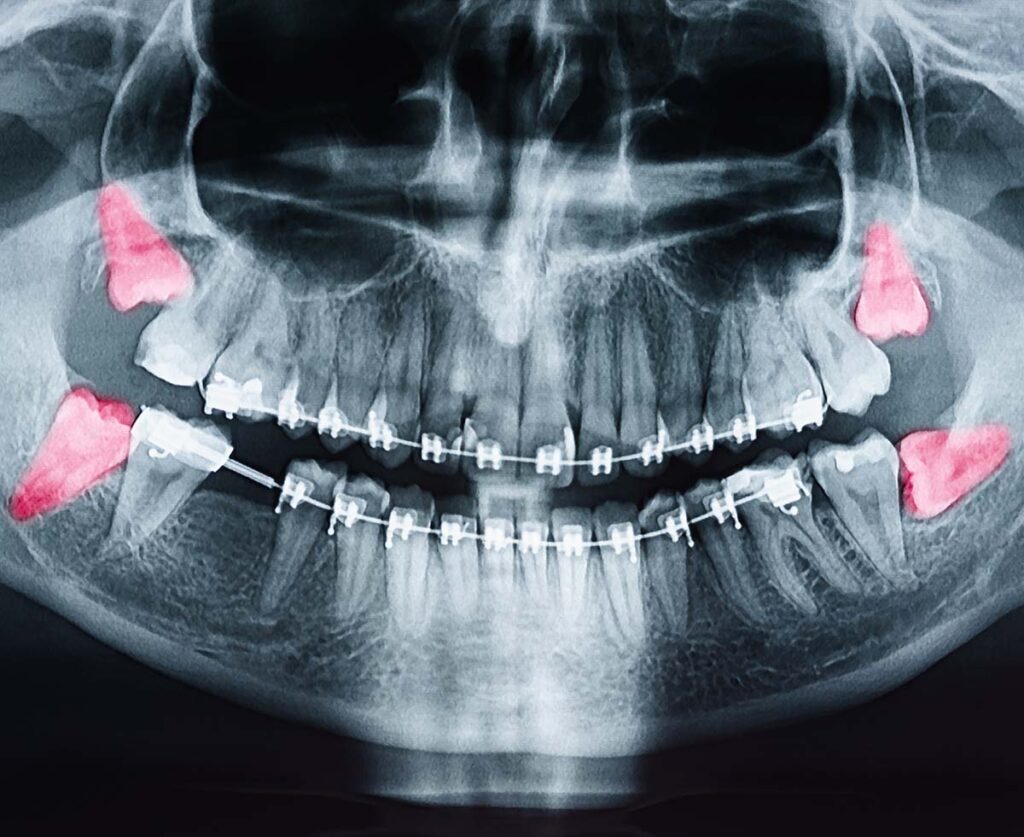
Call 818-788-8787 today to see how we can transform your smile with new teeth in just one day.
Do We Need Them?
In adult life, we very seldom use our wisdom teeth for chewing. In fact, because they are hard to reach when brushing or flossing, wisdom teeth make it difficult to maintain proper oral care. Leaving wisdom teeth in their place therefore compromises oral hygiene and, in turn, compromises the health of important, adjacent molar teeth. At Southland Dental Care, we provide the most comfortable, relaxed setting to get wisdom teeth removed in the most painless and efficient procedure.
What Are Wisdom Teeth
Wisdom teeth, or third molars, are the final set of teeth to emerge in the mouth. They typically grow out when a patient is between the ages of 17 and 25 and get their name from this time period of our lives, nicknamed the “Age of Wisdom.” Oral surgery is recommended to remove wisdom teeth when they impact and harm neighboring teeth because of insufficient space in the dental arch. If there is not enough room in the mouth for wisdom teeth to properly erupt and grow because of overlying gum tissue, bone, or other teeth, the health of the entire mouth is affected.
Why Get Them Removed
Because wisdom teeth can damage the health of adjacent molars and, in turn, negatively impact proper hygiene of the mouth, they can be painful and infectious. Improperly grown wisdom teeth can also damage adjacent roots and, most seriously, cause the sac that surrounds the tooth to become filled with fluid and develop a cyst. If left untreated, the cyst can grow in the mouth and cause permanent damage to neighboring teeth, bones, and nerves. Though rare, a cyst can potentially develop into a tumor, requiring a more serious oral surgery procedure to effectively remove.
When Should I Remove Wisdom Teeth
Because the roots of wisdom teeth develop as we age, they are most easily removed in younger patients. Patients with recently developed wisdom teeth have softer bone surrounding the teeth and have less potential for damaging neighboring nerves or other tooth structures. For this reason, it is important to visit our office as early as possible to see if you are a candidate for wisdom tooth extraction. Removing wisdom teeth becomes increasingly complicated with age because the jawbone is denser and roots have become more fully developed, involving the nerve of the tooth.

What Happens During Surgery?
Before undergoing oral surgery, Dr. Hanookai will fully discuss with you all concerns about what to expect during and after the procedure. During this visit, we encourage you to ask questions to fully understand what will be done and the importance of treating the wisdom teeth. The ease with which wisdom teeth are removed varies on a case-to-case basis according to specific root development and tooth positions and is assessed before performing oral surgery. Infected wisdom teeth may involve a more advanced surgical procedure.
What Happens After Surgery?
Directly following oral surgery, patients may exhibit minor swelling and discomfort as these are typical components of a normal healing process. We recommend using cold compresses to decrease swelling. Dr. Hanookai can prescribe medication to manage discomfort. To help shorten the time between surgery and fully healing, your diet may have to be adjusted accordingly. You can resume your normal eating habits as the healing process advances.
